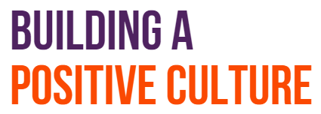Debra Allcock Tyler: Creating a non-toxic culture
Discover how to create a positive work environment and eliminate toxicity with these wise words from Debra Allcock Tyler, CEO DSC.
Our sector has been beset by stories of toxic cultures recently – systemic issues around bullying, harassment, race and other discriminatory and harmful practices. But clearly not all organisations are like that, nor are all the folk in them racist, sexist bullies. So, what makes the difference between an organisation where people don’t feel safe and free to shine and one where people do?
Well, it is of course the culture – but culture is one of those words, a bit like strategy, where folk sort of know what it means but have no idea how to create one for their own organisation. It’s one of those things that is simple but not easy. It’s awkward for me to say without sounding self-aggrandising but we really do have a wonderful culture at DSC. Our staff and trustees are incredibly proud of us as an organisation, are proud of their colleagues and managers, and proud of their own work.
We’re not perfect and there are times when we get things wrong, both organisationally and as individuals – but our systemic culture is one of compassion and kindness for each other, can-do/will-do attitude, focus on beneficiaries and above all openness. But we didn’t just magic it out of thin air, it has taken focus and hard work over many years.
We’ve been thinking hard about what it is that we do at DSC that is replicable across the sector and that we can share with you, and we’ve distilled it down to 5 core things:
- A shared vision and objectives;
- Shared decision-making;
- Shared learning;
- Shared expectations and experiences and finally
- Shared results.
Over the coming weeks we’re going to break these down into some detail so that you can adapt them to your own organisations and we’ll also direct you to sources of information and support – but here are some quick snapshots of each area to get you thinking.
Shared Vision and Objectives
Everyone in every job role at DSC knows what our vision and objectives are and how they help us to help citizens, causes and communities in need. Indeed, they’ve helped us to create them. Everyone is reminded regularly how their particular role contributes to our wider work.
Our board and executive team are close and connected and work in real, adult, peer-like partnership. We know that together we serve the charity and our beneficiaries and service users in order to meet our charitable objectives.
Shared Decision-making
None of our decisions are taken behind closed doors. Our folk know what our challenges, constraints and commitments are. Most decisions are taken at the level where they are most impacted ie at the level of the staff. And bigger organisational decisions are consulted and shared widely.
Very few things happen in DSC without some sort of cross-reporting lines teams or projects so that everyone has the chance to have a say in things that affect them. From developing our well-being processes to deciding what services we should be offering to the sector – everyone’s view counts.
Shared learning
As you would expect of an organisation that shares information and learning with the sector – we do the same internally. We do a lot of joint learning, from the more traditional staff training days to everyone being bought a book to read and discuss (recently for example we bought everyone Reni Eddo-Lodge’s Why I’m No Longer Talking to White People About Race). Our teams learn together and our organisation learns together.
Shared expectations and experiences
We have clear, written down standards of behaviour that we expect from our staff and our managers. We have a set of leadership standards that we expect our managers to adhere to and that are shared with our staff. We have very clear, simple policies and procedures which are briefed on a rotational basis every month. And we have a shared expectation that we won’t keep anything from our staff. We tell them the truth.
Shared results
All our work is connected to achieving our vision and objectives and we regularly update staff on how we are doing against what we set out to do. We tell the truth about when things have gone well and when they are not going so well. We have a saying at DSC that it is not our job to protect our staff from the truth – but to support them once we’ve told them.
In summary
These five things take a lot of discipline to ingrain into the culture. A happy, productive culture simply doesn’t happen by accident. It takes reminding managers and staff over and over again of what our values are, what we expect of them and how we will support them to achieve it and handle things when they go wrong.
There’s no magic culture wand. But there is the magic of a wonderful culture when you work hard at it and think about it all the time.


